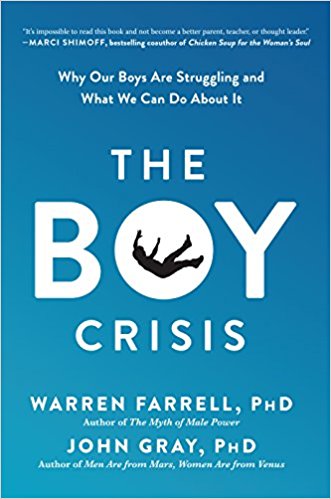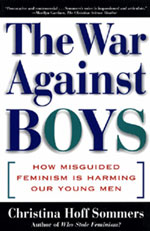![]()
Canada's largest national newspaper
A is for adult authority
As a Quebec town tries to rein in its restless youth with a controversial curfew, Christian broadcaster LORNA DUECK sees a lesson for all Canadian parents
The Globe and Mail, By LORNA DUECK, Thursday, August 5, 2004 - Page A15
If the kids find out I'm writing this, I'm toast. A national story about how to control your teenager hasn't been dinner table conversation at my home, probably because we haven't had the kids at supper very often lately. They are teenagers, for heaven's sake, and they've got a life of their own.
Or they did until a small-town Quebec mayor prompted every Canadian parent to think about how to account for our failure to keep our emerging adults (a.k.a. teenagers) at home late at night.
Mayor Stphane Gendron of Huntingdon, Que., caused a media stir when he called parents "stupid." If you check with your teen about the bylaw the mayor has pushed through (it says parents must accompany children under 16 who are outdoors after 10:30 p.m.; those who let their kids roam unsupervised are liable to a fine) you may again hear the adjective "stupid" applied. I have to smile at the bravado of a mayor who manages to ignite two such dissimilar groups as his common enemy.
The conflict erupted over how the town of 2,600 could protect itself from those few among its 150 rambling, roaming teenagers who have a penchant for property crimes. The town's first attempt to tuck all the kids in early was chilled by the Quebec Human Rights Commission, which said that placing children 16 and younger under a curfew violated the Quebec Charter of Rights and Freedoms for all citizens, including children. (The word "stupid" comes to mind again: Imagine the chaos if our offspring discover that not going to bed is a liberty their parents' tax dollars will help them fight for!) Despite the setback, commonsense Mr. Gendron pressed on. His town has woefully few police services; just one police car patrols 13 municipalities in the region, an area twice the size of Montreal. Obviously, Huntingdon needs more protection. This week, by a vote of 5-2, town council decided to make parents the new enforcers. Mom or dad face a $50 fine for having an unsupervised teen out late, $100 if they are repeatedly lax with the new rules.
Mr. Gendron and his supporters have had it with the liberalizing of family values in Quebec. The controversy shows how his town's problems are signs of a discussion that needs to take place at a much wider level.
"When you try and be a parent, you have the world against you," Mr. Gendron has commented. Reading through the press clippings, you can hear the public murmur that it's about time someone stated the obvious. Huntingdon resident Ross Wilson, 84, who supports his mayor, summed up the problem to a reporter: "We've got less respect and less parenting." In an on-line poll at the Montreal Gazette, 87 per cent of respondents thought penalizing parents of late-night roaming teens was fair.
Science tells us that the teenage brain is wired to stay up late; melatonin is a body chemical that make us sleepy, and teens secrete it later in the day than adults. That's unfortunate science for the parent who is wired by an alarm and a job to get up early. But it's not the only in-your-face problem that affects our keeping track of our teens.
What Mayor Gendron put his finger on is a far deeper conflict that shouldn't be swept under the carpet as this local issue passes across the national stage -- and that is the reality that our connection to our teenagers has become increasingly complex, and, amid all the noise we process in the business of living, our ability to account for the well-being of those relationships gets precious little attention.
Frankly, we've needed the scolding Mayor Gendron provides. Aged 38, he's from the school that believes nobody raises children better than a parent. Six years ago, he temporarily left his law practice to be a full-time dad to his newborn child and two older children. His wife is a daycare director, and Mr. Gendron has studied principles of early-childhood education to equip him in his work as a lawyer.
Politically incorrect, he says the enfant roi (child-king) philosophy has taken over Quebec. He knows that other provinces envy Quebec's $7-a-day childcare policy -- but, he says, "It has just made a factory of children. It's bad policy, dumping children at daycare, then at TV and the Internet; there is no more respect for them."
We should listen to radicals like Mr. Gendron. He echoes what we all know in our hearts. Raising kids isn't about convenience. When our kids are big enough to put themselves to bed, they need even more parental self-sacrifice. They're emerging adults, and this is the time in their lives where something has to trigger their capacity to live by values, principles, and respect. Their connection to the source of that learning must be sincere enough for ideology to take hold. There are no shortcuts to being a steward of our children's future.
Last fall, a groundbreaking American study, Hard Wired to Connect, released the findings of 33 scientists and experts with backgrounds from Harvard to the YMCA. This study concluded that the behavioural and mental health of children was deteriorating, because children lacked connectedness in a key area. Children, the study said, desperately needed what the experts called "authoritative community" -- relationships with adults, especially parents, offering moral and spiritual elements. Such relationships are vital to a child's future well-being.
Let's heed this common sense: Only the gift of our time -- and a tender heart -- can make it happen for our families.
Lorna Dueck produces Listen Up TV, a weekly look at Christian thought in Canadian life seen Thursdays on Global TV and CTS.





